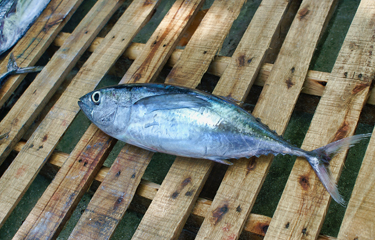A weeklong Inter-American Tropical Tuna Commission (IATTC) meeting, held to advance the commission’s protection of bigeye, yellowfin, and skipjack tuna stocks in the Eastern Pacific Ocean, has failed deliver any such conservation measure.
With the IATTC unable to reach consensus, discussions on the measure roll over to its next virtual meeting, scheduled to take place on 18 October.
International non-governmental organizations, including The Pew Charitable Trusts and The International Seafood Sustainability Foundation (ISSF), have expressed their disappointment over the inaction.
“The Inter-American Tropical Tuna Commission has failed yet again to meet its own deadline to achieve its fundamental mandate, leaving eastern Pacific tuna fisheries vulnerable to overfishing and decline,” Pew Charitable Trusts International Fisheries Project Senior Officer Grantly Galland said. “After a week of negotiations, there was no agreement among member governments on how to manage fisheries for tropical tunas, worth more than USD 4.5 billion [EUR 3.8 million] a year. Though managers were able to agree to a plan that will eventually improve transparency by increasing electronic monitoring of fishing activities, there is little else to celebrate. IATTC members must work together over the next six weeks to come to agreement on the tropical tuna measure, so the upcoming October meeting can be used to advance new approaches that will improve the transparency of IATTC management and help avoid these wasteful delays. Eastern Pacific fish populations and the markets and communities that depend on them urgently need more predictable, responsible governance.”
In 2020, the IATTC conducted new assessments of bigeye and yellowfin tuna that found that while yellowfin remains healthy, there was a 53 percent probability that bigeye is being overfished and a 50 percent probability that overfishing was occurring.
Ahead of the 98th session of the IATTC, held virtually between 23 and 27 August 2021, ISSF issued a position statement calling on the regional body to adopt a new version of its current conservation measure, which it and IATTC’s own scientific advisory committee said has been “ineffective” in limiting catches of the tuna species. The new measures would have included stronger provisions to manage fish aggregating devices to prevent increased fishing pressure. But while several IATTC parties made proposals to advance conservation-based measures, none were advanced during the meeting.
“While we are disappointed, we are encouraged by the strong efforts of several parties to the commission, which did their best to find consensus and promote the adoption of a robust new measure,” ISSF President Susan Jackson said in a press release.
For the IATTC meeting in October, ISSF will continue to urge the passing of a new tuna conservation measure that limits fishing pressure on yellowfin and bigeye tuna; make improvements in FAD management; and accelerate the development of harvest strategies and modernized monitoring, control, and surveillance tools.
Photo courtesy of MikeCloudStock/Shutterstock







